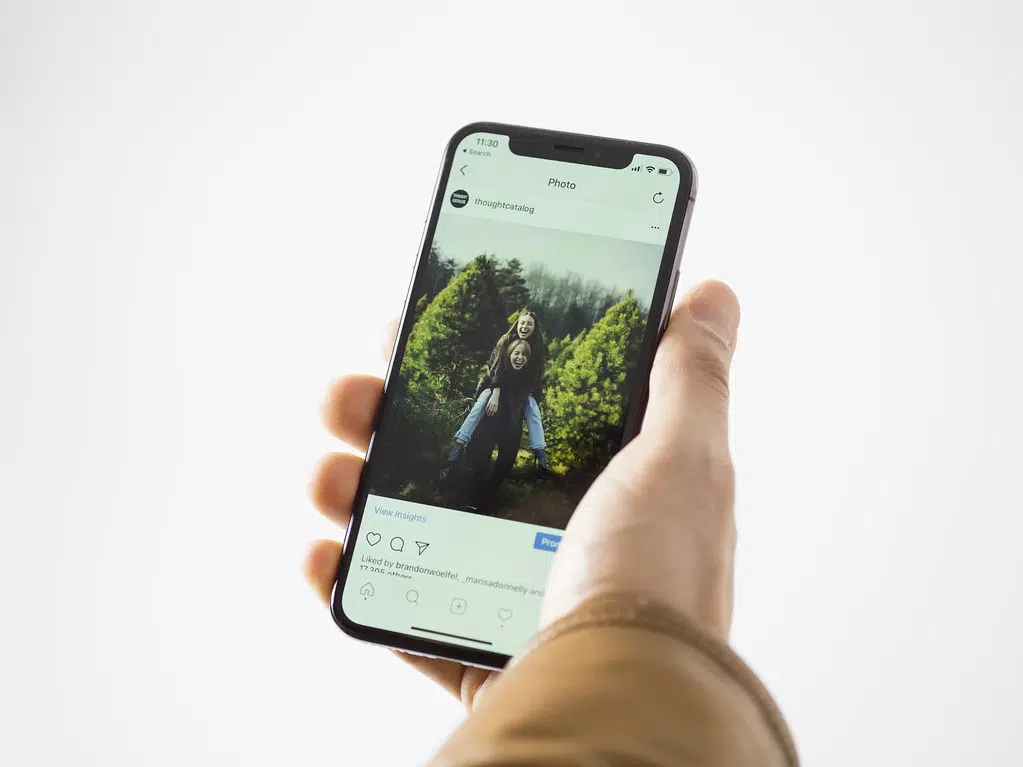Instagram has become the go-to social media app for photo and video sharing. Niche corners of the app have grown to encompass fitness, health, wellness and body positivity. With over 1 billion users, Instagram is teeming with content, but how do you navigate the good from the bad?
With so much information concerning health on the app, it can be difficult to know what is true or false. Influencers promote diet trends like FitTea and juice cleanses because they are sponsored to do so, but younger users might not be able to discern the ads from the truth.
As if there weren’t enough ads promoting weightless to young girls, Instagram has made it so girls and boys are constantly exposed to possibly damaging advertisements telling them to lose weight.
The body positivity movement
In response to the rampant diet culture on Instagram and other social media sites, the body positivity movement started to grow in popularity. Digital content manager, Emily Connor is an avid Instagram user, and said she found solace in following more body positive accounts.
“It was sort of finding people who looked like me,” she said. “Growing and up even still, my body is not represented in the media.”
Connor said making this switch has been beneficial to her confidence overall.
“That really helped me find my confidence in my body so I feel that’s the overall effect that it’s had on me,” she said.
Nutritionist, Karri Wilson said doing this can be extremely empowering. She encourages all of her clients to purge their social media feeds of anything that makes them feel bad about themselves.
“Detox that social media,” she said. “Go through your social media and get rid of accounts that emphasize that you’re not good enough in this body right now.”
She recommends avoiding:
- 1200 calorie/day accounts
- “What I eat in a day” videos
- Before and after photos
When body positive accounts jump ship
Most people agree that body positivity in not concerned with losing weight. That’s why it was so shocking to fans of Lizzo, when the famous singer and rapper recently shared that she was undergoing a juice cleanse. Promoters of the body positivity movement found this to be an outright betrayal; juice cleanses have been linked to eating disorders, unhealthy dieting, and malnutrition.
Connor said she’s experienced this with other accounts in the past.
“There’s been a few accounts that I’ve followed that I identified them because I felt aligned with their body or their values, and then they would lose a bunch of weight as their following grew and that really affected me.”
While she understands that everyone loses weight for different reasons, she said that it was difficult to lose an account that once made her feel accepted in her body.
Wilson added that this is how toxic diet culture permeates even the most positive corners of the internet.
“Diet culture becomes so rooted in social media because we are looking at influencers all the time,” she said.
So how can you tell the difference between a truly body positive account and one that is secretly promoting weightless? Wilson said you have to do your research.
“If there’s an account out there–and trust me, there’s a ton of them–that are masquerading kind of as this body positivity account, dig deeper,” she said.
When looking for body positive accounts, Wilson recommends looking for the following:
- Users who share real information about body positivity and wellness
- Real-life experiences
- Important conversations about health and wellness
- Diversity
Because of the aesthetics of Instagram, thin cis-gendered white women have become the face of the body positivity movement. But the movement was first popularized by Black women, people with disabilities, and overweight individuals whose bodies were not already accepted by society. While you’re scrolling your feed, ask yourself: how long do I have to scroll before I see a face or body that is different from mine?
It can be hard to navigate health and wellness on the Internet, so Wilson said to remember that copying what you see online might not be what your body needs. Leave social media for positivity only, and explore in your own time what is best for you and your body.






Comments